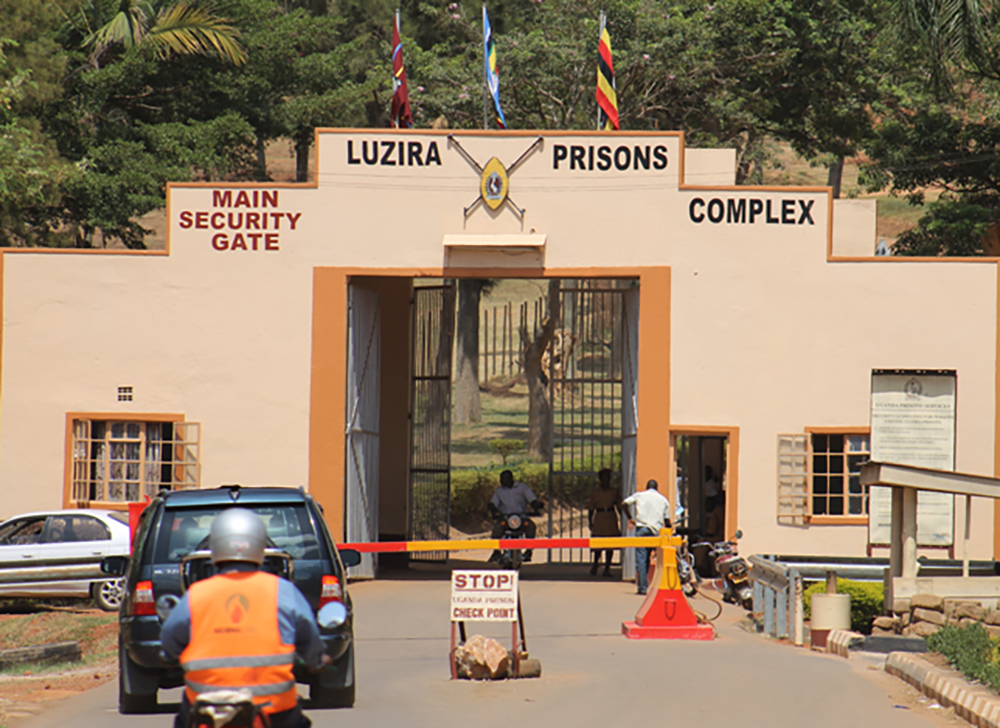(Kampala) – Uganda’s prisons are operating at 363.6% of their intended capacity, with 76,244 inmates occupying facilities built to hold only 20,996, according to the 2023/24 Justice Law and Order (JLOS) report released at the Commonwealth Resort in Munyonyo.
Commissioner General of Prisons Andrew Byabashaija emphasized the need for increased prison capacity, crime prevention measures, and alternatives to incarceration, such as community service, to address the crisis. He highlighted that overcrowding strains essential services like housing, sanitation, healthcare, and prisoner transportation to court.
Despite this dire situation, remand rates have slightly improved, dropping from 48.3% in July 2023 to 47.3% in June 2024. However, court cases rose sharply from 68,405 in 2022 to 84,907 in 2023, even as the crime rate declined from 524 cases per 100,000 people in 2022 to 501 in 2023.
Key Criminal Case Statistics
| Metric | Number |
|---|---|
| Convictions | 27,125 |
| Acquittals | 843 |
| Dismissed Cases | 10,096 |
| Pending Cases | 46,843 |
The rise in cases is attributed to increased deployment of surveillance tools like CCTV cameras, motorized patrols, and community policing. Criminal Investigations Directorate (CID) Director Tom Magambo credited the Automated Fingerprint Information System (AFIS) and nationwide CCTV networks for enhancing crime detection and prevention.
Case disposal rates also improved, climbing from 55% in 2022/23 to 63% in 2023/24. Director of Public Prosecutions Jane Frances Abodo praised plea bargaining for accelerating case resolution and reducing backlogs. Conviction rates reached 73.1%, reflecting better investigations and institutional collaboration.
The Judiciary reported that while case backlog remained at 27%, the number of cases filed grew by over 25%, from 205,967 in 2022/23 to 266,323 in 2023/24. Approximately 37.2% of reported cases were taken to court, up from 29.5% in 2022.
The report also highlighted a decline in reoffending rates, down from 14.3% in 2021/22 to 13.9%, and increased public trust in the justice system, now at 69%, compared to 47% in 2020.
Despite these gains, challenges remain. Resource constraints, delayed funding, and new district operational demands threaten progress. Staffing shortages in justice institutions could reverse hard-won improvements.
Justice Sector Infrastructure and Anti-Corruption Efforts
| Project | Progress |
|---|---|
| JLOS House Construction | 75% Complete |
| Gulu Immigration Office | 90% Complete |
| National DNA Databank | Foundational |
| Moroto Facility Construction | Finishing Stage |
Efforts to combat corruption also showed positive results. Prosecution-led investigations ensured high conviction rates, with anti-corruption agencies making strides in transparency and accountability.
Minister of Justice and Constitutional Affairs Norbert Mao called for sustained efforts to safeguard institutional gains, address weaknesses, and empower citizens. “We reaffirm our joint commitment to building trust and upholding rights,” Mao stated, underscoring the importance of a coordinated approach under the third National Development Plan.
Permanent Secretary Robert Kasande added that the report serves as a benchmark for evaluating progress and identifying areas for improvement and investment.




















